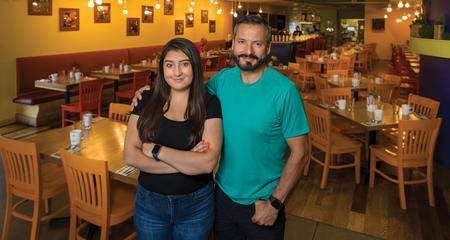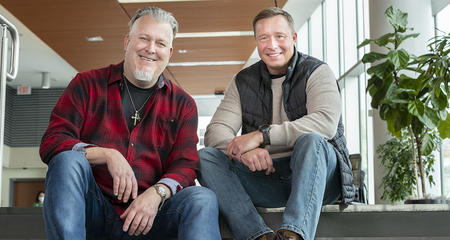“An expert is a person who has made all the mistakes that can be made in a very narrow field.”
- Niels Bohr
Five experienced, well-published, and widely respected head and neck cancer surgeons are sharing the dais at the national medical meeting to explore the topic “Can We Be Better?” The panel represents a spectrum of experts from around North America and they have served as program leaders, department chairs, and deans. Those of us in the audience know that these people collectively have seen everything. They are smart, compassionate, and gifted. We would trust any one of them to care for a family member.
“So,” intones the moderator as he displays a PET/CT scan with a massive cancer of the throat, “You did well on that last case. Let me make this even more difficult.”
Each case is complex. The panelists work through discussions of patients who have undergone extensive surgical procedures and have received radiation therapy and chemotherapy, only to have the cancer return.
“Oh, boy. That’s a recurrence after treatment? Wow. I wouldn’t have much to offer that one,” says one of the experts.
“How about some chemotherapy?” asks the moderator.
“I have had a few patients do surprisingly well when they were placed on long term anti-cancer antibodies,” says one of the others.
“The data are not very supportive of that approach,” says the moderator. “The research says it extends life by only a few weeks and the drugs cost about $10,000 per month.”
“About one-quarter of lifetime medical expenses occur in the final year of life,” notes another.
“I would have the patient and family work with the palliative care team. There was a Boston study demonstrating that people receiving no treatment actually lived longer than people receiving chemotherapy near the end of life,” says another.
And so it goes. Back-and-forth with no textbook answers. The panelists gamely quote research and recall patients who have done well and have done poorly. They suggest palliative care, hospice referrals, and comfort measures. They discuss costs. They review the principles of shared decision making. They acknowledge that, at some point, further active treatment is always futile.
“And what if he was in his eighties instead of being in his fifties?” asks the moderator. “Would you change your mind based on his age?”
The panelists glance at each other and smile. “It depends,” they say.
Those of us in the audience understand that the requisite skills to care for these difficult patients does not come easily, even to these world-class experts. Their abilities and judgement have accumulated slowly in layers over the course of long and thoughtful careers.
I look around the room and nod to one of my East Coast colleagues who does what I do. Other surgeons shake their heads and whisper to each other. I suspect they are all remembering patients and situations that were equally vexing.
Then one of the surgeons on the panel says this: “My worst nightmare is having all of my head and neck cancer patients come back from the grave to visit me.”
It is a shock to hear him say this, but I know what he means. When things go well, our patients can live long and functional lives. When thing go badly, though, the final weeks and months can be horrible for both patient and family. As surgeons, we grieve as well, although we realize our suffering pales when compared to what the family experiences. The memories of those patients remain. Even when we have established solid relationships and have compassionately helped patients transition through the stages that approach the end of life, we still feel as though we have failed them.
I glance over my shoulder to check the reactions from the back of the auditorium. The rows are filled with young men and women - the medical students and residents - who are at the meeting to present their research and discuss their posters. They are just beginning their journeys as physicians, filled with anticipation while they decide on their potential careers paths.
I wonder: What must they be thinking, watching these senior surgeons appear to struggle with patient care decisions? If these chairs, deans, and surgeon-leaders nearing the ends of their clinical careers are still anxious and uncertain about caring for these patients, why would these young physicians ever want to select this field of practice?
It wasn’t all that long ago when I was sitting in those seats and wondering the same thing. A few patient encounters, welcoming families, and serendipitous moments directed my footsteps. I still experience anxiety at times, although those anxious moments sometimes let me know I am still alive.
Building a career and a life around the difficult moments has rewards. Some of our students and residents will, in fact, be drawn to the flame. I try to share the rewards with them and encourage them to be reflective. My task is to help provide them the tools to find meaning and peace that will carry them deep into careers that will never, ever offer certainty.




As always, a very well written blog and thought provoking reflections.You have a kind heart.